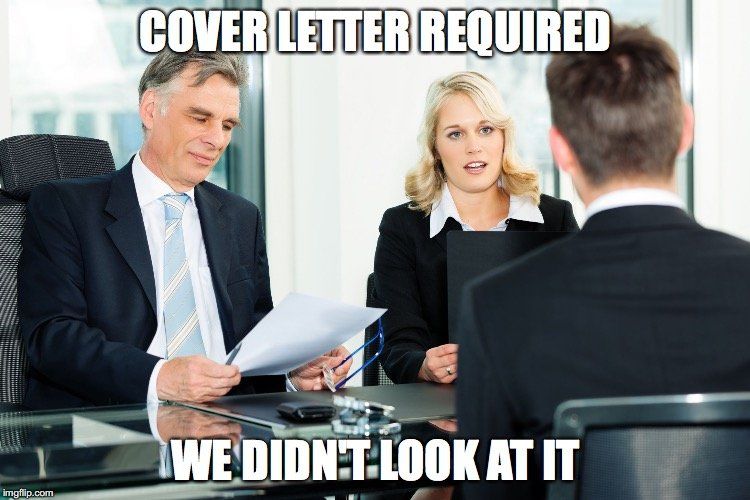Dear John. The cover letter debate.
As a recruiter of 23 years and counting, I will confess, I rarely look at cover letters. When I do, it’s because there is something unexplained in the CV that the cover letter may answer before I pick up the phone to talk to the candidate. And that is kinda the crux of it for a good agency recruiter, we pick up the phone and talk to candidates.

When a candidate applies to one of my advertised roles, I’m not just considering that person for that particular role, I’m interested in that person for other current roles or future roles. They may not be suitable for the role they applied for, but I’m still going to contact them because I see the value of their skills for other clients. This is why recruiters don’t rely too much on cover letters.
However, if you are applying directly to the hiring organisation, then a cover letter specifically written with that particular job in mind allows you to highlight certain areas you think would make you the right fit for the role. It can be a more effective way to stand out from the other applicants beyond just a CV. Writing cleverly composed cover letters gives the hirer an insight into your personality, drive and what you can bring to the new position. Your CV should be concise, so your cover letter is the perfect way to highlight and elaborate on your achievements.
Traditionally, a cover letter was the cover page for your curriculum vitae and would be read first; however, today, your CV is usually what will be considered first - whether going via a recruitment agency or direct. Your cover letter could help persuade the hirer to take you to the next round in the process, so whilst they are not as originally intended, they are still being read and considered.
ResumeGo recently conducted a survey that showed that applications with tailored-to-role cover letters were well over 50 per cent more likely to be invited for an interview. The research showed that this figure dropped to almost 20 per cent for applications with generic cover letters and almost zero for those who didn't include any cover letter at all. Personalised cover letters are far superior to generic letters.
Many job applications request that you include a cover letter with your curriculum vitae, so you must include one. You don't want a prospective employer to think you cannot follow instructions. Whilst it's essential that you understand whether a cover letter is requested or not, as an applicant, you might also deem one necessary; perhaps you want to highlight a particular aspect of your personality, a skill in your armoury that makes you stand out from the crowd, highlight transferable skills, how you’ve transitioned to different jobs, explain any employment gaps, why you want to apply for an out-of-area role and if you have any personal connections or have been recommended for the role.
Some tips on writing a good cover letter
- Pleasantly address the recruiter or hiring manager, using their name where possible
- Write a catchy introduction paragraph that expresses your interest in the role
- At the heart of the cover letter, outline your relevant skills and experiences and why you are the perfect candidate for the role. Use this section to highlight any unique competencies, professional achievements and practical experiences that support your application
- In the closing paragraph, provide a call to action by expressing your interest in an interview
- Provide your contact information
- Remember that whilst you can show off your skills and qualifications in a cover letter, you can also show your personality and ability to communicate ideas
What NOT to include
Remember that recruiters and hiring managers read hundreds of cover letters, many of which will include phrases that will be ignored.
- Omit opinion phrases completely. So instead of writing "I'm confident that my communication skills would make me a strong marketing manager", perhaps write "My communication skills would make me a strong marketing manager" it's punchier and sounds more sincere. Don't include phrases such as I think, feel, believe, etc.
- Whilst you can say, "I'm good at working as part of a team", there are many words that are far more powerful, including descriptors such as seasoned, expert, successful, experienced, talented, accomplished, skilled, respected, capable and influential. Ensure that you choose words that represent your skill level and experience. Use a Thesaurus if you get stuck!
- There is no need to announce that you are attaching your curriculum vitae; the recruiter or hiring manager can already see that you've included it. Don't include the statement "As you can see from my CV" in your cover letter; instead, be direct "I have been working in marketing for over three years"
- It’s important to be confident in your cover letter, but drop arrogant phrases such as “I’m the best/perfect/ideal candidate because…”. Whilst you might be a super choice, you don’t know that you are the best and imagine your recruiter reading that in every letter they receive. Use synonyms such as excellent, outstanding, inimitable, terrific, great and unique.
- Another bugbear is "To whom it may concern". All it says is that you didn't research the name of the recruiter or hiring manager. If you really can’t find the right contact name, then consider something like “Dear Careers For Purpose Recruiting Department” or “Dear (hiring manager title)”
- Avoid any negatives such as "I don't have much experience in marketing, but…"; instead, focus on the positives and the unique ways you'd be great at this job. "This marketing job would help me because…" is also negative; explain how you can help them instead.



